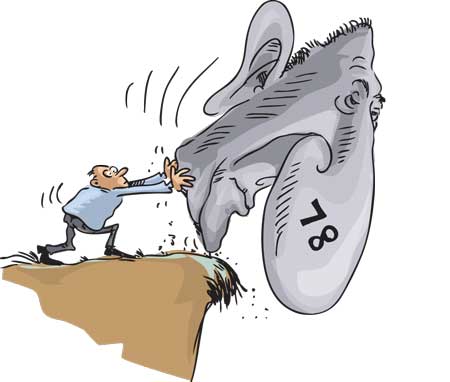Reply To:
Name - Reply Comment
With the two major alliances and other parties campaigning intensively on a level playing field for the August 17 General Elections a leading and widely respected constitutional expert has called on the newly elected Government to totally change the 1978 Constitution because he believes its negatives far outweigh the positives. Dr. Rohan Edirisinha, a veteran law lecturer at the Colombo University said on Monday the 19th Amendment which took away more than 50 percent of the powers of the Executive Presidency was good but not enough. He called for a Constituent Assembly to be formed in the new Parliament to draft a totally new Constitution.

Addressing a workshop for journalists Dr. Edirisinha said that while Articles 10 to 14 of the Constitution were like a Bill of fundamental rights some provisions of Article 15 enable the government to introduce legislation or issue gazette notifications which virtually nullified or invalidated the people’s rights provided for in Article 10 to 14. He said when the 1978 Executive Presidential Constitution was being drafted by a few individuals including the then President’s brother H. W. Jayewardene, he and other leading lawyers had expressed concern over the consequences specially when the executive president had a two thirds majority in Parliament, as we saw from 1978 to 1988 and again in a more devastating way from 2010 to 2015.
According to legal observers among others who have expressed concern over the 1978 Constitution was one of the world’s most eminent jurists, Justice C. J. Weeramanthri who went on to become the Senior Vice President of the International Court of Justice.
Many legal analysts have claimed that the decision to hold a referendum in 1982 instead of Palrimanetary General election was legal but illegitimate, if not immoral. Through a 50.1 percent yes-vote at the referendum J. R. Jayewardene was able to convert it into a five sixths or more than 83 percent majority in Parliament. Most analysts believe this was one of the main reasons that pushed the Janatha Vimukthi Peramuna back into the arms struggle leading to the 1983 riots and the devastating 25-year ethnic war between the government and the Liberation Tigers of Tamil Eelam.
It appears that most Sri Lankans are not good at learning the right lessons from bad experiences. Hundreds of thousands of people were killed or injured in the terrorist war and an equal number were left displaced, destitute and languishing in different degrees of degradation. The financial cost of the war is incalculable.
In May 2009 the then President Mahinda Rajapaksa gave powerful political leadership to the security forces to eliminate the LTTE. History has clearly shown that good leaders need to be magnanimous and humble in victory. These virtues were seldom seen and the former President who won the war sadly appeared to lose the peace. Many analysts believe one of the main reasons was the absolute power given to the President specially after the enforcement of the 18th Amendment which scrapped the Constitutional Council, the Independent Commission and gave the President the right to go on for an unlimited period.
Most world constitutions, including the United States Constitution -- widely regarded as one of the most enlightened documents produced by human beings -- limits the number of term too because of the awareness that going on for more than that is bad for the President and the people. In the early presidential elections called on January 8 this year Mr. Rajapaksa suffered the consequences.
The workshop also focused on the important role that professional journalists are called upon to play in restoring or building national unity reconciliation, peace and justice through multi-religious and multi-ethnic unity in diversity. The media are one of the four foundations of a vibrant democracy. Professional journalists are called upon to maintain the dignity of their profession by taking a free and fair stand and being the voice of the voiceless people.